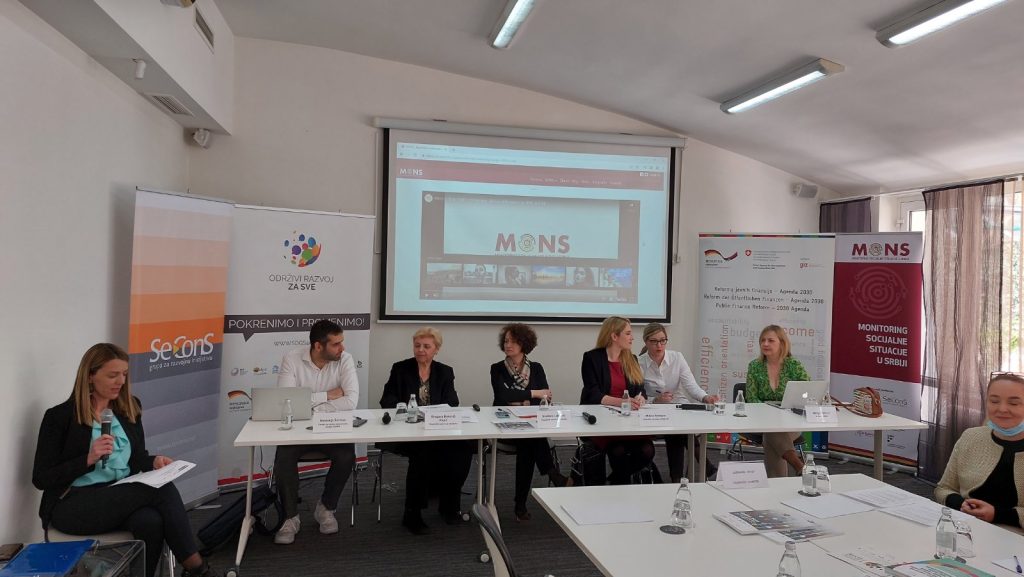The Progress Report on the Implementation of Sustainable Development Goals for 2021, developed by the Statistical Office of the Republic of Serbia, was presented at the panel “Serbia and the Sustainable Development Goals”, together with the new issue of MONS entitled “Progress in achieving the Sustainable Development Goals by 2030 in Serbia”. The key topics were the position of Serbia in relation to the set goals, the results achieved during 2021, the issues that deserve more engagement, and the ways to more efficiently manage the development in order to achieve the goals listed under the 2030 Agenda.
The panel was organized by the SeConS Development Initiative Group with the support of the German Agency for International Cooperation (GIZ) in Serbia, within the project “Public Finance Reform – 2030 Agenda”. This project is supported by the governments of Switzerland and Germany, and implemented by the German Agency for International Cooperation (GIZ).
“In order for Serbia to better catch up with the achievement of the Sustainable Development Goals, it is necessary to focus on the following three key issues: strengthening of cooperation and coordination in order to reach an agreement on reform priorities; translating the Goals into national policies, bringing them down to the local level and allocating the funds for their implementation; using credible data and evidence to drive this process and keeping the citizens constantly informed of progress”.
This is what Milena Altmeyer, leader of the project “Public Finance Reform – Agenda 2030” that is implemented by the German Agency for International Cooperation (GIZ) in Serbia, said at the panel “Serbia and Sustainable Development Goals”, where the latest Progress Report on Sustainable Development Goals for 2021, developed by the Statistical Office of the Republic of Serbia, was presented together with the new issue of MONS entitled “Progress in achieving the Sustainable Development Goals by 2030 in Serbia”.
Milena Altmeyer said that the Government of Serbia was involved in formulating the Sustainable Development Goals, but that “they would like it to be more determined in implementing the 2030 Agenda, to translate all Goals into national policies and bring them down accordingly to the national level.” She added that the Government of Serbia had once established the Inter-Secretariat Working Group tasked with the implementation and monitoring of the achievement of Goals, but that such a group was not reestablished after the 2020 elections.
What was said at this panel was that Serbia did not nationalize and prioritize Sustainable Development Goals, neither did it incorporate them into other public policy documents or establish a clear and transparent framework to fund and monitor them to the full extent. It was added that Serbia even regressed on some Goals, and therefore one in every fourteen citizens had no financial means to meet the basic necessities of life, while one in every four citizens lived at the risk of becoming poor.
The 2030 Agenda includes 17 Sustainable Development Goals with 169 targets.

